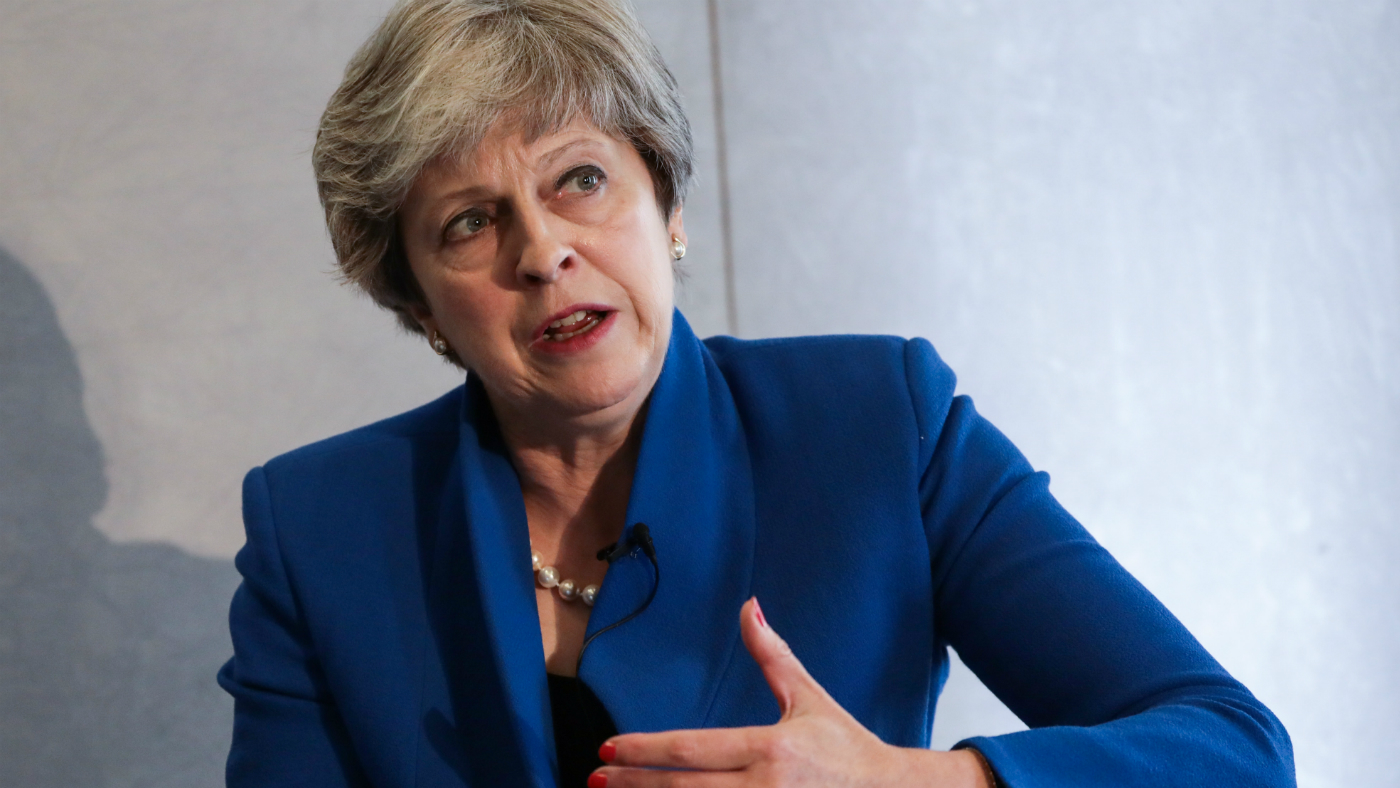Theresa May defends free market economy after Corbyn speech
PM calls capitalism the ‘greatest agent of collective human progress ever created’

A free daily email with the biggest news stories of the day – and the best features from TheWeek.com
You are now subscribed
Your newsletter sign-up was successful
The Prime Minister has championed free market economics, one day after Jeremy Corbyn attacked Britain’s “failed model of capitalism” and presented the Labour party as a government in waiting.
Theresa May’s comments, which The Daily Telegraph characterised as a “strong defence” of capitalism, were made in a speech to commemorate 20 years since the Bank of England was given the right to set interest rates.
May called capitalism the “greatest agent of collective human progress ever created” and said prosperity required a tough approach to ensure budgets are balanced.
The Week
Escape your echo chamber. Get the facts behind the news, plus analysis from multiple perspectives.

Sign up for The Week's Free Newsletters
From our morning news briefing to a weekly Good News Newsletter, get the best of The Week delivered directly to your inbox.
From our morning news briefing to a weekly Good News Newsletter, get the best of The Week delivered directly to your inbox.
“To abandon that balanced approach with unfunded borrowing and significantly higher levels of taxation would damage our economy, threaten jobs, and hurt working people,” she said, adding that “ultimately, that would mean less money for the public services we all rely on.”
The Prime Minister said it was free-market economics that “led societies out of darkness and stagnation and into the light of the modern age”.
Reuters noted that living standards have fallen since the Conservatives came to power in 2010, due to “years of meagre wage growth and bouts of high inflation - including a slowdown caused by last year’s vote to leave the European Union”.
Ed Balls, former Labour shadow chancellor, said May's speech surprised him, as championing the free market felt like bad economics and bad politics.
A free daily email with the biggest news stories of the day – and the best features from TheWeek.com
On Wednesday, Labour leader Jeremy Corbyn attacked May’s economic policies, telling the Labour party conference in Brighton that it was “time we developed a new model to replace the failed dogmas of neo-liberalism”.
-
 Are AI bots conspiring against us?
Are AI bots conspiring against us?Talking Point Moltbook, the AI social network where humans are banned, may be the tip of the iceberg
-
 5 calamitous cartoons about the Washington Post layoffs
5 calamitous cartoons about the Washington Post layoffsCartoons Artists take on a new chapter in journalism, democracy in darkness, and more
-
 Political cartoons for February 14
Political cartoons for February 14Cartoons Saturday's political cartoons include a Valentine's grift, Hillary on the hook, and more
-
 How corrupt is the UK?
How corrupt is the UK?The Explainer Decline in standards ‘risks becoming a defining feature of our political culture’ as Britain falls to lowest ever score on global index
-
 The high street: Britain’s next political battleground?
The high street: Britain’s next political battleground?In the Spotlight Mass closure of shops and influx of organised crime are fuelling voter anger, and offer an opening for Reform UK
-
 Is a Reform-Tory pact becoming more likely?
Is a Reform-Tory pact becoming more likely?Today’s Big Question Nigel Farage’s party is ahead in the polls but still falls well short of a Commons majority, while Conservatives are still losing MPs to Reform
-
 Taking the low road: why the SNP is still standing strong
Taking the low road: why the SNP is still standing strongTalking Point Party is on track for a fifth consecutive victory in May’s Holyrood election, despite controversies and plummeting support
-
 What difference will the 'historic' UK-Germany treaty make?
What difference will the 'historic' UK-Germany treaty make?Today's Big Question Europe's two biggest economies sign first treaty since WWII, underscoring 'triangle alliance' with France amid growing Russian threat and US distance
-
 Is the G7 still relevant?
Is the G7 still relevant?Talking Point Donald Trump's early departure cast a shadow over this week's meeting of the world's major democracies
-
 Angela Rayner: Labour's next leader?
Angela Rayner: Labour's next leader?Today's Big Question A leaked memo has sparked speculation that the deputy PM is positioning herself as the left-of-centre alternative to Keir Starmer
-
 Is Starmer's plan to send migrants overseas Rwanda 2.0?
Is Starmer's plan to send migrants overseas Rwanda 2.0?Today's Big Question Failed asylum seekers could be removed to Balkan nations under new government plans